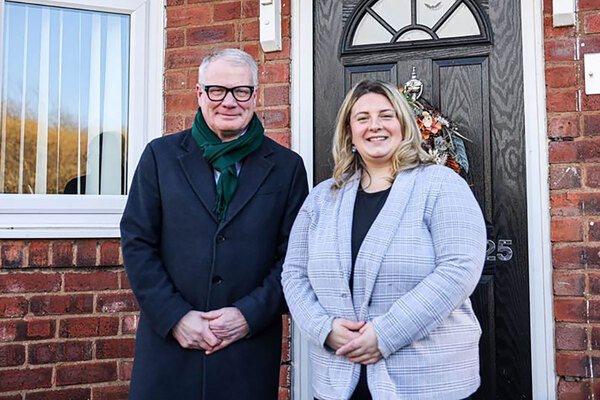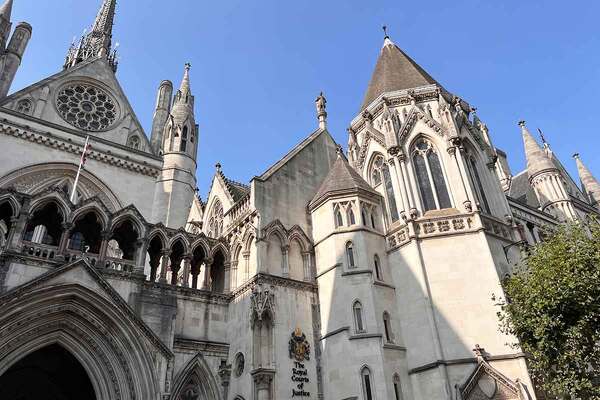You are viewing 1 of your 1 free articles
Yorkshire landlord non-compliant for governance and financial viability after breaching loan covenant
South Yorkshire Housing Association (SYHA) has been downgraded to non-compliant for both governance and financial viability after it “miscalculated its covenant compliance” over a number of years.
In a regulatory notice today, the Regulator of Social Housing (RSH) downgraded SYHA from G2/V2 to G3/V3 after the miscalculation, stemming from “weaknesses in financial governance”, which resulted in a historic covenant breach with one of its funders and a forecast breach for 2022-23.
The RSH launched an investigation in May after a self-referral by the 5,700-home landlord.
It found weaknesses in SYHA’s internal controls framework and concluded that its board has not been managing the organisation with an “appropriate level of skill, diligence, prudence or foresight”.
The judgement said: “Weaknesses in financial governance have led to SYHA miscalculating its covenant compliance over a number of years. This has resulted in a historic covenant breach with one of its funders and a forecast breach for 2022-23.
“Cross default clauses with its other funders have exposed SYHA to wider loan agreement breaches. As a result of this it is evident that financial processes and controls have been inadequate, leading to incorrect financial information being shared with its funders, board and the regulator.”
The regulator said SYHA has failed to have a robust framework in place to ensure the accurate monitoring, reporting and compliance of funders’ covenants, and failed to have an effective system to accurately report delivery of its financial plan.
“While SYHA works with its funders to find a solution to the current issue there remains uncertainty over the outcome,” the judgement said. “There are no immediate liquidity or solvency concerns, however, SYHA’s loss of control has exposed the organisation to potentially serious implications that may impact its future financial viability and so has put its social housing assets at undue risk.”
The regulator concluded that SYHA’s business plan, “even without the potential implications of the loan covenant issues considered”, demonstrates limited financial capacity in the short to medium term.
It said the landlord remains reliant on “uncertain cash flows”, such as fixed asset disposals, to support its financial performance and future covenant compliance.
“Furthermore, SYHA’s mitigation strategies are limited in being able to deal with plausible stresses,” the judgement said.
The RSH said that SYHA has been “open and transparent” during its investigation and acknowledged its concerns.
“SYHA is working with the regulator to strengthen and support the organisation’s financial and governance capacity and capability, and in conjunction with external advisers to make the changes required to ensure its long-term viability and to address the improvements required in this and those outlined in the regulator’s previous judgement,” it said.
Harold Brown, senior assistant director for investigations and enforcement at the RSH, said: “Our investigation found serious issues of concern with SYHA’s financial processes and controls, resulting in breaches to its loan covenants.
“SYHA needs to address these issues promptly to ensure its long-term viability and covenant compliance, and we will continue to monitor the provider closely as it carries out this work.”
Larry Gold, chief executive of SYHA, said: “While we are of course disappointed to not be meeting the regulatory standards at the highest level, we have worked closely with the regulator during the review process and we understand the rationale for the regrade.
“Extensive plans are already well under way to improve our position on governance and viability. These will continue to be our number-one priority. Our commitment to working with the regulator to strengthen the organisation’s financial and governance capacity and capability, and to make the changes required to ensure our long-term viability, is recognised in the regulatory judgement.
“Since joining SYHA as CEO earlier this year, I have been impressed by the dedication of our workforce and commitment to customers. It is important to stress that the judgement is no reflection on the quality of homes and services provided to those we serve.
“Furthermore, we will be working hard to ensure there is no adverse impact on our customers and partners while we make the necessary changes to strengthen our organisation.”
Sign up for our regulation and legal newsletter
Already have an account? Click here to manage your newsletters












